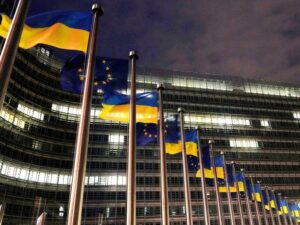
A recent episode of the SwitchedOn podcast highlights the significant impact of misinformation campaigns on Australia’s clean energy debate. As the country strives to transition towards renewable energy sources, these organised efforts to spread disinformation pose a serious threat to progress. Understanding and confronting these campaigns is essential to maintain momentum in this critical sector.
The podcast discusses how misinformation fosters skepticism among the public and policymakers alike. In particular, it sheds light on the tactics employed by various interest groups to spread doubt about clean energy initiatives. The discussions reveal that a persistent narrative questioning the feasibility and reliability of renewable energy sources can delay necessary investments and policy changes.
Misinformation Campaigns and Their Impact
The episode features insights from experts who argue that misinformation campaigns are often well-funded and strategically orchestrated. According to the Australian Energy Market Operator, such campaigns have been linked to fossil fuel interests that fear losing market share as clean energy technologies gain traction. The consequences of these efforts are far-reaching, affecting public opinion and legislative decisions.
In Australia, where the energy sector is undergoing significant changes, the stakes are high. The country has set ambitious targets to reduce carbon emissions by 43% by 2030 compared to 2005 levels. However, misinformation can hinder these goals by creating confusion and resistance among stakeholders. The podcast emphasizes the importance of clear communication and factual information to counter these narratives.
Experts featured in the podcast recommend proactive measures to combat misinformation. These include increasing public awareness about the realities of renewable energy and highlighting successful case studies. The need for transparency in energy policy discussions is also crucial, as it builds trust and helps dispel myths.
Strategies for Addressing Misinformation
One key strategy discussed in the SwitchedOn podcast is the role of social media in the spread of misinformation. The platform’s algorithms can amplify misleading content, making it more challenging for accurate information to reach the public. Participants urge energy advocates and policymakers to engage actively on these platforms, providing reliable data and countering false claims.
Moreover, collaboration between government agencies, energy companies, and non-profit organisations is essential. By pooling resources and expertise, these groups can create a united front against misinformation. Implementing educational campaigns that highlight the benefits and successes of clean energy initiatives can also shift public perception in a more positive direction.
The podcast concludes by stressing the urgency of addressing misinformation in the context of Australia’s energy transition. As the nation strives to lead in renewable energy, it is vital to create an informed public discourse that fosters support for sustainable policies. The fight against misinformation is not merely a communication challenge; it is a crucial component of ensuring a successful transition to a cleaner, more sustainable energy future.
In summary, as Australia navigates its clean energy ambitions, confronting misinformation will be fundamental to achieving its environmental goals while fostering a more informed and supportive public.







